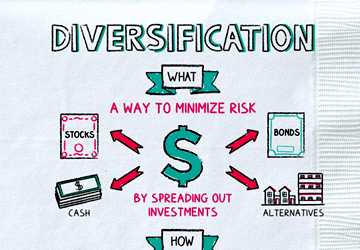Markets are extremely volatile in 2022 due to concerns over rising interest rates and inflation. Markets fell further in June as inflation data hit a 40-year high. After a brief dip on May 20, the S&P 500 re-entered a bear market on June 13.
While we can know from experience how long bear markets, crashes, and market corrections typically last, no one gets a calendar alert indicating the timing, nature, and expected magnitude of an impending decline.
You'll usually weather a downturn better if you have a longer investment horizon and diversify properly. If you are aware that a crash may occur, you can prepare for it and deal with it carefully. Here are some strategies for coping with a market crash.
Find out what you have and why you have it.
Temporary declines should not be used as an excuse to sell investments out of fear. However, if you go back and review the original research, you can find some solid reasons to sell.
A comprehensive stock analysis includes a written description of your investment's strengths, weaknesses, and intended use, as well as factors that may cause each asset to fall into the "exit" box. Their research is a physical reminder of the qualities that make a business worthwhile, like an investment roadmap.
Diversification

When the market is down, if you spread your money across multiple investment types, such as stocks and bonds, your results may be different—perhaps in your favor. Diversification, or the allocation of money among investments, is critical to reducing potential losses and operating smoothly in volatile markets. Also, by diversifying, you can prevent your investments from being overly dependent on one asset. In other words, if a sector or stock underperforms, your other assets can help you cover some of your losses.
Ready to buy dips.
Market declines can sometimes provide buying opportunities. Think of it as buying stocks at lower prices during a market downturn. The key is to be prepared for a downturn and be willing to spend some money to acquire assets that are declining in value.
Here's how to find out if you're ready to buy the dip: You have a retirement plan, cash for everyday needs, and an emergency fund. You've saved some money so you're ready for a flash sale in the event of a disaster, and you keep a list of specific stocks you want to buy.
Consult others
Investing is profitable when the market is booming and the value of your portfolio is increasing. But when the going gets tough, self-doubt and silly tactics take hold. Even the most confident savers are vulnerable to short-term thinking. So don't let self-doubt ruin your financial ambitions.
Hiring a financial advisor can help you evaluate your portfolio and get a second opinion on your financial strategy. It's good to know that if something goes wrong, there is someone to turn to.
Use as much as possible.

Watching your carefully constructed portfolio go through some unfavorable volatility can be frustrating. Making decisions about your future self can help alleviate some of these fears. As financial advisors often point out, a market downturn can be a good time for Roth to switch.




